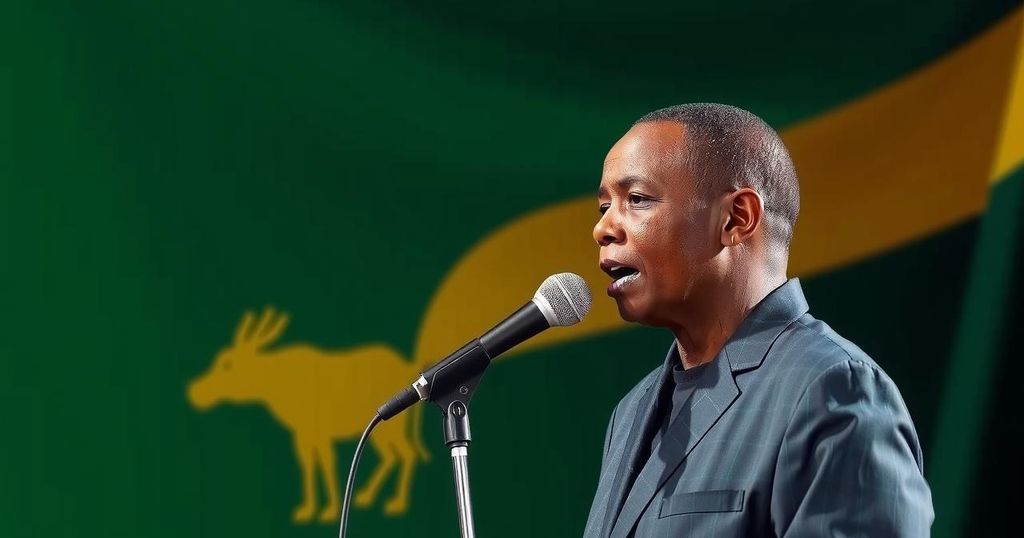The Botswana Democratic Party (BDP) is campaigning for re-election with a new emphasis on “change” as it faces a competitive election environment. President Masisi acknowledges economic challenges, including high unemployment and wealth disparity, while the opposition parties present a strong unified front advocating for reform. Public sentiment reflects growing dissatisfaction with the government, underscoring the unpredictable nature of the upcoming election.
In the upcoming general election, the Botswana Democratic Party (BDP), which has held power for nearly sixty years, is advocating for “change” to secure another term. This campaign slogan marks a significant shift, as it is typically associated with opposition parties. President Mokgweetsi Masisi, who has been in office since 2018, emphasizes the need for a new direction, acknowledging that his administration must adapt to address pervasive economic difficulties such as high unemployment rates, particularly among youth. Despite a rich history of transforming Botswana from a poverty-stricken nation into one of the most prosperous countries in Africa, the BDP faces criticism regarding wealth inequality and perceived governmental corruption. Academics highlight the disparity in wealth distribution, with the Gini index indicating that Botswana is among the most unequal nations globally. Furthermore, the diamond industry, a pillar of the economy, is facing challenges due to declining global demand. President Masisi continues to project optimism, engaging voters at campaign rallies and emphasizing improvements in local business support and job creation. However, detractors within the political landscape question whether the BDP can truly represent change, suggesting that their responses to economic issues have been reactive rather than proactive. They accuse the government of adopting previously rejected proposals from opposition parties without genuine commitment to reform. The opposition is galvanized, with parties like the Botswana Congress Party and the Umbrella for Democratic Change presenting a united front against the BDP, criticizing its governance and calling for significant policy changes to improve education and employment opportunities. Voter sentiment appears mixed, as opinion polls reveal widespread discontent with the current administration, indicating challenges for the BDP ahead of the election. As the election approaches, the BDP must navigate internal divisions while simultaneously countering the united front presented by opposition parties, raising questions about the future of its longstanding governance in Botswana.
Botswana has been governed by the Botswana Democratic Party (BDP) since independence in 1966. Over the years, it has established a reputation for political stability and significant economic progress, largely fueled by the country’s diamond wealth. However, this historical dominance is now challenged by growing discontent regarding high unemployment rates, economic inequality, and perceived governmental corruption. The opposition parties are capitalizing on these issues, presenting themselves as a viable alternative demanding genuine reform. The upcoming election is significant as it could determine whether the BDP can continue its lengthy tenure or whether the opposition can capitalize on the public’s dissatisfaction.
The forthcoming general election in Botswana presents a critical juncture for the BDP, as they strive to maintain power amidst a backdrop of economic challenges and public demand for change. While the party historically has benefited from its established governance and economic growth, the increasing scrutiny from disillusioned voters and cohesive opposition coalitions poses a potential threat to their electoral success. The outcome of this election will ultimately reveal whether the BDP can convincingly assert its commitment to change and retain the confidence of the electorate.
Original Source: www.bbc.com







